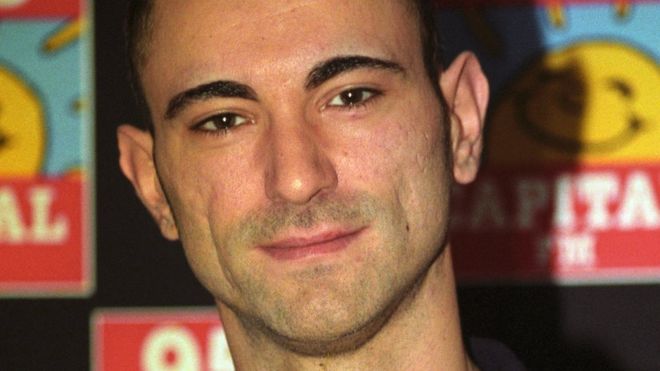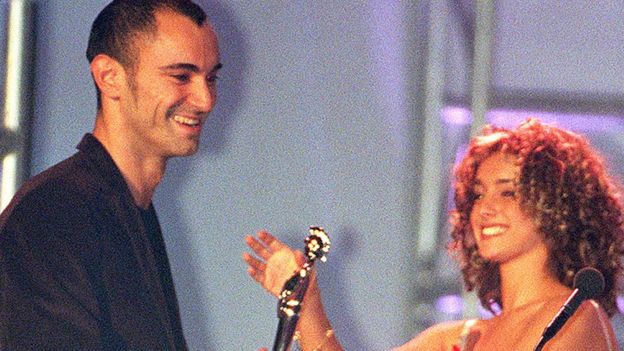Robert Miles' Children - the hit
written to save clubbers' lives
 PA
PA
DJ Robert Miles has died at the age of 47. The track that defined his career, Children, was one of the biggest-selling instrumentals in Europe and inspired a whole new genre. But Miles had an unusual motivation for it - helping to tackle "Saturday night slaughter" on Italy's roads.
Children is one of the most iconic tracks in the history of dance music.
It launched a new genre - "dream house" - and although that did not last long, the more melancholy, cerebral sound opened the door for trance music, which would come to dominate clubs in the late 1990s, going fully mainstream into the new millennium.
That sound was a very deliberate choice by Miles, whose real name was Roberto Concina.
Although Children was initially written in response to images of the child victims of the Balkans war as Yugoslavia tore itself apart, the track then took on a different life - and a different motivation. Miles wanted to make it big to help save the lives of clubbers.
Car crash danger
The sound of Europe's clubs in the mid-1990s - in particular in Italy, where Miles lived - was amped-up tracks and hard beats.
But the high this music induced in clubbers - plus any substances they may have taken to enhance their experience - meant that when the night was over, they were still feeling the full effects of drugs and adrenaline.
This was blamed for a rise in car crashes at the weekends. Having danced all night and often driven many miles to get to the clubs, young drivers were losing control and ending up in appalling accidents.
In fact, so bad was the problem that it had its own term in Italy - "stragi del sabato sera" - Saturday night slaughter.
Children, therefore, was an option for DJs to put on as the last track of the night.
It had a soft beat, slower and far less frenetic than the music that would have preceded it. The full-length version started without any instruments at all - it began with the natural sound of a thunderstorm.
But it was the piano riff that really made Children different.
 FIONA HANSON
FIONA HANSON
It was mournful, a sound that triggered deep emotions. To listeners, the children of the title were not literally the world's under-16s but their own younger selves.
To those in the right frame of mind, the track brought feelings of nostalgia, calm and longing, like the regret of remembering a beautiful dream. Not for nothing was the track's parent album called Dreamland.
Miles once described the reaction the first time he played the track: "I lifted my gaze and saw a sea of hands reaching up high and a smile stamped on every face," he said.
"A girl approached me in tears. 'What music is this?' she asked me. I don't think I shall ever forget that moment, when I realised that my feelings had been conveyed through my music. My dream turned into reality."
Chart success
The video for Children played on these themes, shot in moody black and white, with a child looking out of a car window at a rainy world.
Italian authorities and parents welcomed the release of the track. And before long, so did Europe's record-buying public.
In the UK, BBC Radio 1's Pete Tong named it Essential Tune of The Week three weeks in a row. It was the eighth best-selling single of 1996.
In Europe - doubtless aided by its lack of vocals, giving it a more universal appeal - Children did even better. It was number one in France for 11 weeks, Germany and Spain for seven, and - crucially - Italy for five. In Miles's home country of Switzerland, it lasted at the top for an extraordinary 13 weeks.
Ultimately, it went top five in every European country that counted record sales.
Miles followed Children's success with another couple of hits from Dreamland - Fable and One & One - and briefly revived the career of Sister Sledge's Kathy Sledge with their collaboration Freedom.
He then devoted his musical career to experimentation, taking his sound in a dramatically different direction that no longer had the commercial appeal that made him a star name.
But his track had changed dance music forever - and perhaps also changed the lives of certain clubbers who thought twice about exhaustedly staggering into their cars on hot nights in mid-90s Italy.
No comments:
Post a Comment